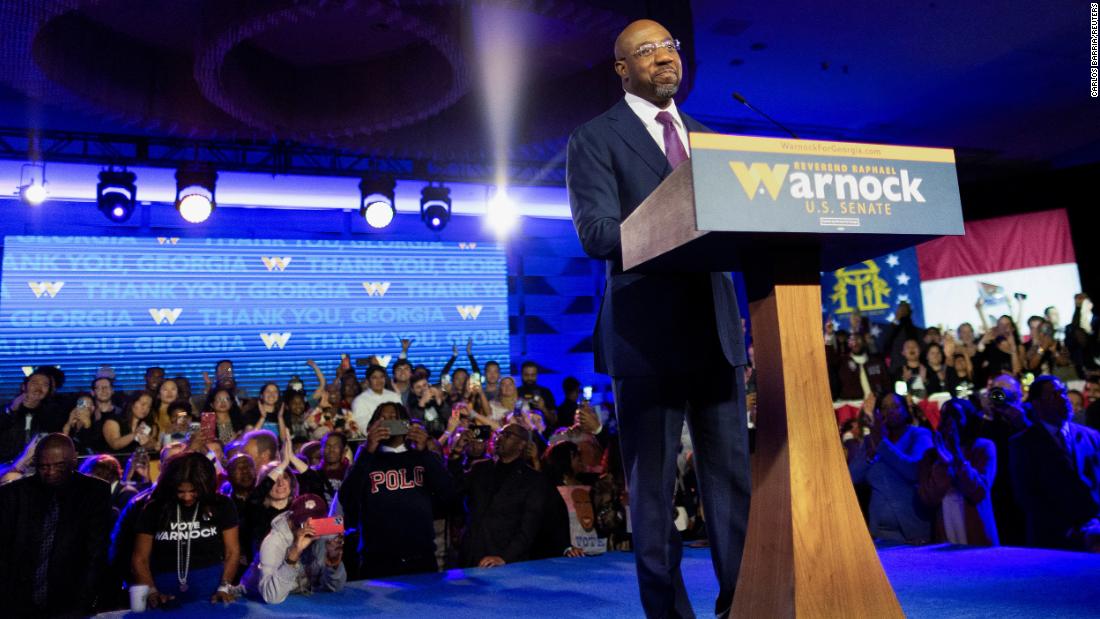A Criminologist Assesses the ‘Racketeer-in-Chief’
Donald Trump’s financial schemes both before and during his presidency suggest a pattern of white-collar fraud that puts him on a par with history’s most notorious racketeers, claims a new book by criminologist Gregg Barak.

 When people think of American racketeers, the first name that often comes to mind is Al Capone. Followed by, for example, Bugsy Siegel (1906-1947) and John Joseph Gotti, Jr. (1940-2002).
When people think of American racketeers, the first name that often comes to mind is Al Capone. Followed by, for example, Bugsy Siegel (1906-1947) and John Joseph Gotti, Jr. (1940-2002).
Few think of the 45th president of the United States.
The notorious abilities of Capone and these other crime kingpins to corrupt people and neutralize the forces of law pale in comparison to the former president. In a forthcoming (May 2022) book, Criminology on Trump, I have marshalled the mens rea type of evidence that I hope prosecutors and the Department of Justice will consider in charging Trump and his associates with a variety of white-collar crimes.
By most measures, Donald Trump belongs in the same annals where we place our now-legendary crime bosses. Assassinations aside, these 20th century kingpins had nothing on the Donald and his unconventional world of 21st century racketeering.
Siegel and Gotti were proficient at using money and resources that did not belong to them. They were judicious in counteracting their illegal conduct and were rarely accountable for damages done. Not only did they have close to absolute control over their extended “families,” but their tentacles spread across the interspheres of business, politics and lawlessness.
Few persons in their criminal orbits displayed disloyalty or publicly crossed them. These mobsters were feared for their ruthlessness and for their willingness to exert undue influence on other people.
They would consider Donald Trump a member of their notorious fraternity.
What differentiates my book from the dozens of others devoted to the Donald and his close associates published over the past few years is that it is the only one grounded in the scientific study of crime and social control.
Aberrant Behavior
Because criminology can bring scrutiny to the pathology of harmful individuals, to the construction of crime and punishment, and to the formalities of unequal justice, criminologists possess the ideal combination of theories and methods for sorting out and evaluating the aberrant behaviors of Trump, his family and their allies.
And it continues to matter, even though Trump is no longer in the White House.
As the CEO of the Trump Organization, Inc. and the former Commander-in-Chief, Trump is at least in part still capitulated to daily because of his vindictiveness towards those who cross him, and his demonstrated contempt for the rule of law.
There have been other corrupt political bosses in American history, but none who combined his ability to use great wealth to achieve and maintain supreme political power, even after he lost the ballot box, by such illegal means as berating the Georgia secretary of state or other state elector officials in Pennsylvania and Michigan to recalculate the votes in his favor.
Several weeks after losing the 2020 election, on Jan.6, with less than 15 days to go in office, the Lame Duck president of the United States tried to pull off a coup d’état.
From his winter residence in Palm Beach, FL and his Mar-a-Lago golf club and catering facility, the Donald still holds court and has absolute power over the Republican party.
Should the U.S. Congress fail to pass the John R. Lewis Voting Rights Advancement Act in the next 30 days, and should Trump not find himself wearing an orange jumpsuit in the next 30 months, then by January 2025 the Mobster-in-Chief and his comrades in lawlessness will likely find themselves dividing their time between the White House, Palm Beach and Bedminster (where his New Jersey golf club and winter home are located)―whether they fairly win the 2024 presidential election or steal it back from the legitimate winner.
To understand how we got to this point, my book examines three generations of Trump businesses. It attempts to show how long before he became president, he was operating a criminal enterprise composed of various illegal schemes and rackets as part of the Trump Organization.
This book is also an historical account of the intermingling of illegal and legal activities that Donald Trump pursued in order to obtain the power of Commander-in-Chief, what he did with that power once he had obtained it, and finally the lengths to which he would go to keep from losing that power.
Lastly, it is the story of what many elected and appointed politicos did or did not do to acquire or forfeit their share of Trumpian power, or a piece of the Republican party’s struggle to consolidate an evolving autocracy.
Over the course of five decades, Trump’s modus operandi in lawlessness advanced his business and political career. These techniques of deviance were made possible by systemic white-collar and corporate crime, abuses of power, and legal impunity.
During these years, the Donald has been accused of sexual assault, tax evasion, money laundering, non-payment of employees, insurrection, and the defrauding of tenants, customers, contractors, investors, bankers, and charities.
Although Trump has so far been able to escape criminal accountability for his actions, he has suffered defeats civilly, such as when he paid $25 million to settle the Trump University fraudulent lawsuit in 2016 as he became the 45th president.
This scheme to take money from “students” is one example why I believe the label of “racketeer” applies to the Donald. My book demonstrates that racketeering has been central to the business model of the Trump organization for three generations.
Avoiding RICO
In part, Trump’s absence from the go-to-list of racketeers has to do with the global evolution of organizational crime. It also has to do with the Racketeer Influenced and Corrupt Organizations Act (RICO) not being used historically to prosecute state, corporate, and political offenders for the crimes of racketeering.
Though there are 35 types of felonies or illegal schemes that fall under RICO, the law has been used primarily to go after organized or syndicated criminals rather than other business entities or organizations, such as those involving corporate persons and financial institutions engaged in securities rackets and a variety of other criminal schemes.
Typically, targeted crime families have made their wealth by way of the protection rackets, the numbers rackets, or the drug rackets. Not all these rackets or illegal schemes have necessarily involved extortion, fraud, deception, or coercive practices but most of them have.
Additionally, most of the organizational vice crimes, for example, have been part of the underground tax-free economy. Any related taxation associated with these criminal enterprises often comes from their lawful or front businesses such as bars, restaurants, hotels, laundromats, and parking concessions.
In the case of the Trumps, the family has always operated a mixture of “illegitimate” and “legitimate” businesses vis-à-vis a combination of fraudulently based tax-reducing schemes and various shadow-based economic rackets, most notably Donald’s money-laundering real estate operations in New York and Florida, according to my investigations.
Long before Trump came to the White House, my research shows that the organization’s modus operandi has included falsifying and manipulating bottom lines, profits, losses, wealth, debt, taxes, loans, and so on. Depending on the financial transaction called for, the Trumps direct the various types of data upward or downward as called for.
As part of this fraudulent family tradition, initiated by Fred Trump, Sr. in the 1940s, the Trump Organization engaged in a variety of non-traditional illegal schemes around the inheritance laws of taxation that in my judgment constitute racketeering.
These rackets have allegedly involved internally owned shell companies created for the purposes of illegally sustaining and transferring the family wealth. Likewise, the Trump financial accounting arrangements regularly engage in various forms of looting by maintaining, for example, two sets of cooked books for at least the past 15 consecutive years, according to the Manhattan District Attorney’s office.
That office opened a criminal indictment of the Trump Organization, Inc. and its CFO, Allen Weisselberg, in the summer of 2021, listing these and other allegations including falsifying business records, tax fraud and committing a criminal scheme to defraud.
Alvin Bragg, Jr. who was elected to replace Manhattan DA Cyrus Vance Jr., has promised to focus on the Trump case, now currently before a grand jury―and possibly expand its scope.
But that’s not the only area where Trump is potentially on the hook for criminal activities.
The Trump Hotel
Several of the Trump operations circulated through and within the Trump International Hotel (TIH) a few blocks away from the White House. These rackets allegedly included but were not limited to Trump’s workarounds of the Foreign Emoluments Clause, his foreign and domestic pay-to-play schemes, and his biggest money-making scam of all.
I refer to the anti-democracy fundraising campaigns such as “Stop the Steal” that had raised in less than one year more than $250 million by fall 2021.
Had the Donald been reelected to a second term there would have been no Stop the Steal campaign and no cash-gushing cow to milk, although it is not clear whether Trump might have been able to continue to rake in the DC “house chips” as it were.
Taxes filed with the IRS reveal that the TIH was losing on average some $17.5 million annually for a total loss of $70 million during Trump’s four years as president. On the other hand, the U.S. House Oversight and Reform Committee has reported that the Donald had claimed to the General Services Administration that during the same period the DC hotel had earned $150 million.
Despite this quarter-of-a-billion-dollar discrepancy between the money lost and money earned, other published information indicates the hotel operation was also generating other revenue streams including an estimated $3.7 million from foreign governments above board, and unknown amounts of money through the exchanging of foreign currencies above and below board.
Perhaps the blending of these different revenue streams is why the former president may have grossly exaggerated the financial health of this property?
Then again, during this period, the DC hotel had been on and off the market since 2018. So, it was an appropriate time for the Donald and company to inflate the value of their property.
Over the years, the TIH represents only one of Trump’s many hotel ventures that have slipped towards bankruptcy. On each occasion, Trump has desperately tried to avoid liquidation by sale and has sought to extricate himself from accumulating mountains of debt.
In this instance, to help keep the DC hotel afloat as it first went on the market, the Trump holding company was forced to inject $24 million into the operation. Similarly, one of Trump’s oldest partners, Deutsche Bank, also extended the payment due date for a Trump IOU.
Keep in mind that this bank, which last year settled with the Department of Justice to pay $130 million in damages and criminal penalties in connection with violations of the Foreign Corrupt Practices Act (FCPA) and a separate investigation into a commodities fraud scheme lent Donald Trump more than $2 billion.
The two parties have also been extorting, or suing and countersuing each other, for three decades.
The Deutsche “bail out” allowed Trump to delay payment for up to six years on a personally guaranteed loan of $170 million. Meanwhile, in October 2019, the Trump Organization tried to sell the lease of the Trump International Hotel for the ridiculous asking price of $500 million. (Trump had acquired the same for $200 million back in 2013 to restore and convert the 122-year-old U.S. Postal Office Building into a four-star luxury hotel.)
In November 2020, when bids came in at less than half the asking price the sale process was put on hold.

Gregg Barak
Nevertheless, one year later, it now appears that the latest juggling of the books may have had something to do with Trump having apparently sold the TIH lease in late 2021 to a south Florida investment group for an alleged $300 million profit.
It remains to be seen whether the Racketeer-in-Chief three years from now will be wearing that orange jumpsuit or running for a third-in-a-row presidential election.
Gregg Barak, Ph.D., is an Emeritus Professor of Criminology & Criminal Justice at Eastern Michigan University, and the co-founder and North American Editor of the Sage Journal of White Collar and Corporate Crime. Other books include: Chronicles of a Radical Criminologist: Working the Margins of Law, Power, and Justice, and Theft of a Nation: Wall Street Looting and Regulatory Colluding. His latest book, Criminology on Trump, will be published in May by Routledge.

 Landwebs
Landwebs 





















